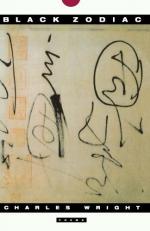|
This section contains 2,357 words (approx. 8 pages at 300 words per page) |

|
SOURCE: “What Persists,” in Georgia Review, Vol. LI, No. 2, Summer, 1997, pp. 331-55.
In the following excerpt, Kitchen examines the structure, meditative themes, and theoretical underpinnings of Wright's poetry in Chickamauga.
The most obvious and salient fact about the natural separation of poetry from criticism is that in the greatest ages of poetry there has been little or no criticism. Criticism comes, if at all, after the art.
—Karl Shapiro
Things have changed since Karl Shapiro's time—and this is Karl Shapiro's time. But during his long career of writing both poetry and criticism, the gap between the two has simultaneously widened and narrowed. Theorists have discovered what writers always knew (“The meaning of poetry, as far as language is concerned, is the meaning of hey-nonny-nonny. To the poet, hey-nonny-nonny means what the other words in the poem failed to say.”—Karl Shapiro, In Defense of Ignorance, 1960), but they've...
|
This section contains 2,357 words (approx. 8 pages at 300 words per page) |

|


